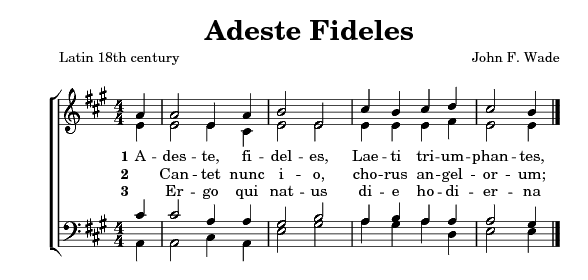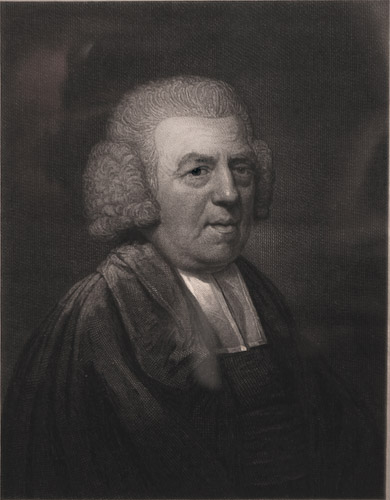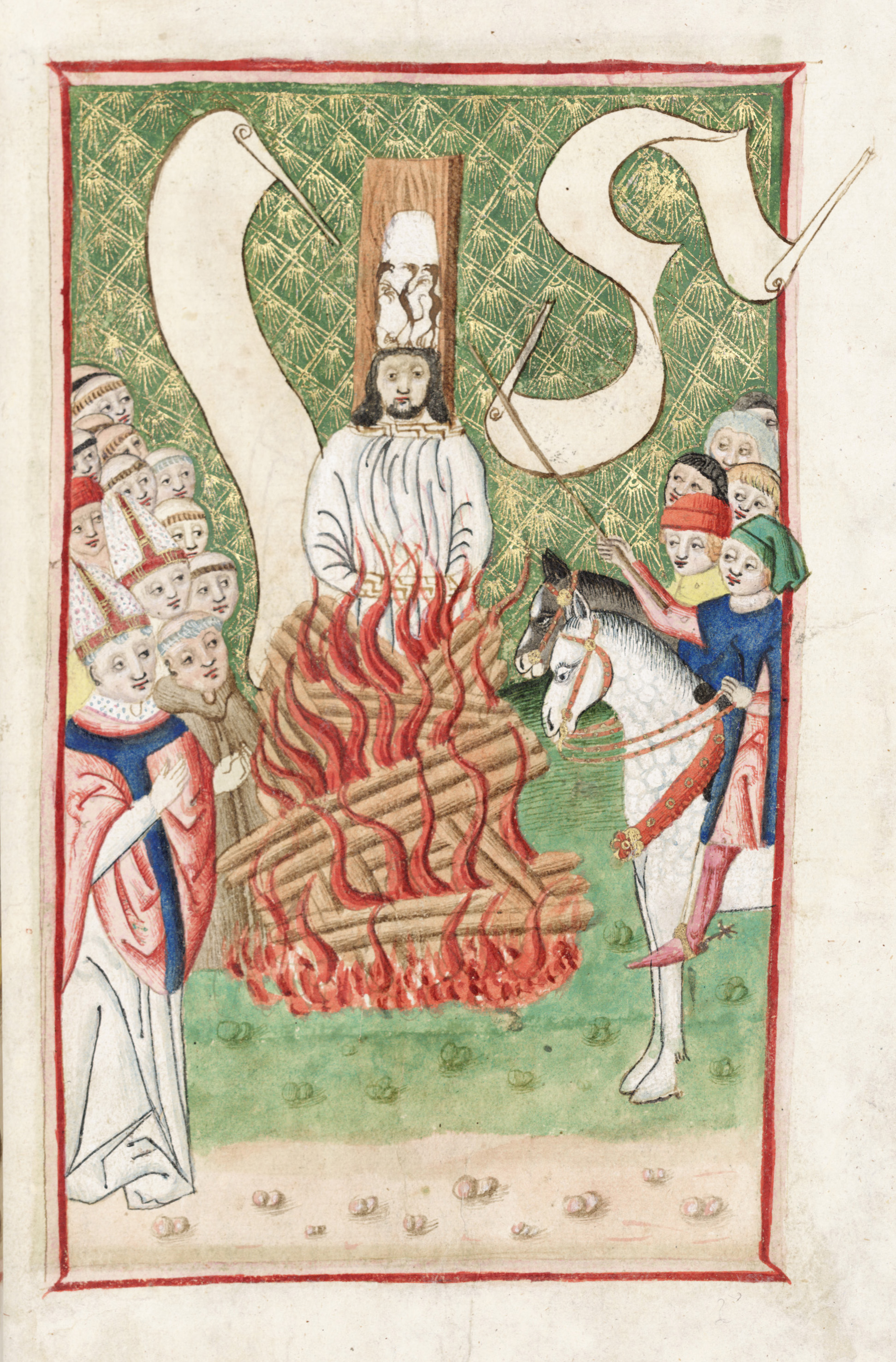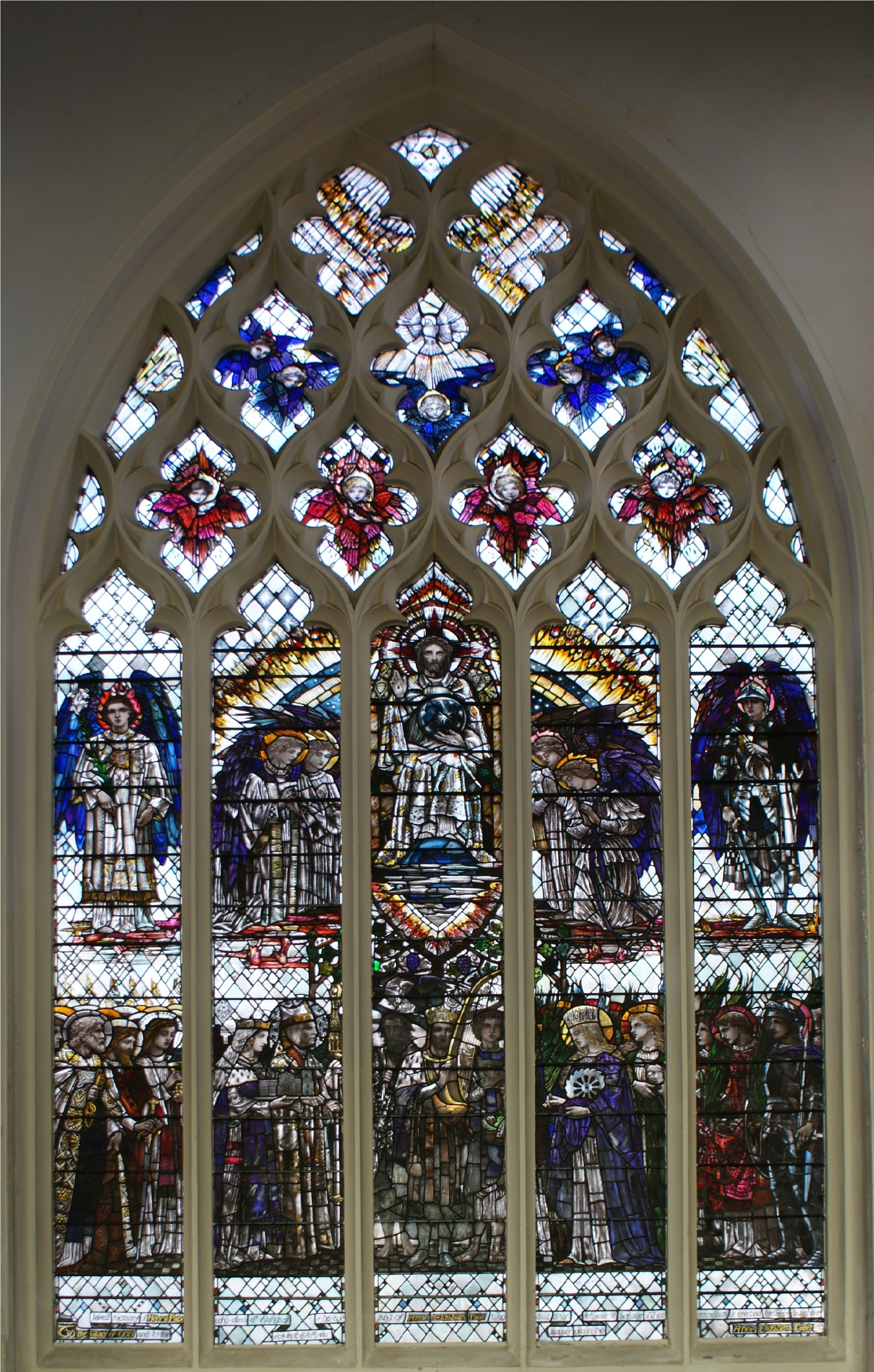|
Hymnal
A hymnal or hymnary is a collection of hymns, usually in the form of a book, called a hymnbook (or hymn book). They are used in congregational singing. A hymnal may contain only hymn texts (normal for most hymnals for most centuries of Christian history); written melodies are extra, and more recently harmony parts have also been provided. Hymnals are omnipresent in churches but are not often discussed; nevertheless, liturgical scholar Massey H. Shepherd once observed: "In all periods of the Church's history, the theology of the people has been chiefly molded by their hymns." Elements and format Since the twentieth century, singer-songwriter hymns have become common, but in previous centuries, generally poets wrote the words, and musicians wrote the tunes. The texts are known and indexed by their first lines ("incipits") and the hymn tunes are given names, sometimes geographical (the tune "New Britain" for the incipit "Amazing Grace, how sweet the sound"). The hymnal editors c ... [...More Info...] [...Related Items...] OR: [Wikipedia] [Google] [Baidu] |
Hymn Tune
A hymn tune is the melody of a musical composition to which a hymn text is sung. Musically speaking, a hymn is generally understood to have four-part (or more) harmony, a fast harmonic rhythm (chords change frequently), with or without refrain or chorus. From the late sixteenth century in England and Scotland, when most people were not musically literate and learned melodies by rote, it was a common practice to sing a new text to a hymn tune the singers already knew which had a suitable meter and character. There are many hymn tunes which might fit a particular hymn: a hymn in Long Metre might be sung to any hymn tune in Long Metre, but the tunes might be as different as those tunes that have been used for centuries with hymns such as '' Te lucis ante terminum'', on one hand, and an arrangement of the calypso tune used with '' Jamaica Farewell'', on the other. Hymnal editors Editors bring extensive knowledge of theology, poetry, and music to the process of compiling a new ... [...More Info...] [...Related Items...] OR: [Wikipedia] [Google] [Baidu] |
Ausbund
The ''Ausbund'' ("Paragon" in German) is the oldest Anabaptist hymnal and one of the oldest Christian song books in continuous use. It is used today by North American Amish congregations. History The core of the ''Ausbund'' is based on fifty-one songs written by Anabaptists from Passau,Bavaria. Eleven of these songs were written by their leader, Michael Schneider. Twelve others may have been written by Hans Betz. The hymns were composed in the dungeon of Passau Castle, where the Anabaptists were imprisoned between 1535 and 1540 because of their convictions. Some—among them Hans Betz—did not survive the imprisonment. Many of these imprisoned Anabaptists were martyred. The collection was printed in 1564. A copy of this first printing is found at the Mennonite Historical Library of Goshen College, bearing the title ''Etliche schöne christliche Gesäng wie dieselbigen zu Passau von den Schweizer Brüdern in der Gefenknus im Schloss durch göttliche Gnade gedicht und gesungen ... [...More Info...] [...Related Items...] OR: [Wikipedia] [Google] [Baidu] |
Hymn
A hymn is a type of song, and partially synonymous with devotional song, specifically written for the purpose of adoration or prayer, and typically addressed to a deity or deities, or to a prominent figure or personification. The word ''hymn'' derives from Greek language, Greek (''hymnos''), which means "a song of praise". A writer of hymns is known as a hymnist. The singing or composition of hymns is called hymnody. Collections of hymns are known as hymnals or hymn books. Hymns may or may not include instrumental accompaniment. Polyhymnia is the Greco/Roman goddess of hymns. Although most familiar to speakers of English in the context of Christianity, hymns are also a fixture of other major religious groups, world religions, especially on the Indian subcontinent (''stotras''). Hymns also survive from antiquity, especially from Egyptian and Greek cultures. Some of the oldest surviving examples of notated music are hymns with Greek texts. Origins Ancient Eastern hymns include th ... [...More Info...] [...Related Items...] OR: [Wikipedia] [Google] [Baidu] |
Achtliederbuch
The First Lutheran hymnal, published in 1524 as ''Etlich Cristlich lider / Lobgesang und Psalm'' (Some Christian songs / canticle, and psalm), often also often referred to as the Achtliederbuch (Book with eight songs, literally Eightsongsbook), was the first Lutheranism, Lutheran hymnal. History and content The hymnal was created by Martin Luther and Paul Speratus working in collaboration. It contains eight hymns: four by Luther, three by Speratus, and one anonymous, which has been attributed to Justus Jonas. The creators declared their intentions on the title page: "Lobgesang / un Psalm / dem rainen wort Gottes gemeß / auß der heylige schrifft / durch mancherley hochgelerter gemacht / in der Kirch zu singen / wie es dann zum tayl Berayt in Wittenberg in übung ist." (Canticle / and psalm / according to the pure word of God / from the holy scripture / made by several learned [people] / to be sung in church / as already practised in part in Wittenberg.) The hymnal is rather "e ... [...More Info...] [...Related Items...] OR: [Wikipedia] [Google] [Baidu] |
Erfurt Enchiridion
The ''Erfurt Enchiridion'' (wikt:enchiridion, enchiridion, from , hand book) is the second Lutheranism, Lutheran hymnal. It appeared in 1524 in Erfurt in two competing editions. One of them contains 26 songs, the other 25, 18 of them by Martin Luther, others by Elisabeth Cruciger, Erhard Hegenwald, Justus Jonas and Paul Speratus. While the songs of the ''Enchiridion'' could be used in churches, they were intended primarily for singing elsewhere, such as at home, at court, and in guild meetings. History The songs of the Protestant Reformers, reformer Luther and others were first sold as broadsheets, and contributed to the spreading of Protestant ideas. They were printed in collections, beginning with the First Lutheran hymnal, called the ', and with the Wittenberg song book, both published in 1524. The Erfurt ''Enchiridion'' appeared the same year, in two almost equal editions by two different printers, Johannes Loersfeld and Matthes Maler. Both books are identical except for o ... [...More Info...] [...Related Items...] OR: [Wikipedia] [Google] [Baidu] |
Amazing Grace
"Amazing Grace" is a Christian hymn written in 1772 and published in 1779 by English Anglican clergyman and poet John Newton (1725–1807). It is possibly the most sung and most recorded hymn in the world, and especially popular in the United States, where it is used for both religious and secular purposes. Newton wrote the words from personal experience; he grew up without any particular religious conviction, but his life's path was formed by a variety of twists and coincidences that were often put into motion by others' reactions to what they took as his recalcitrant insubordination. He was pressed into service with the Royal Navy, and after leaving the service, he became involved in the Atlantic slave trade. In 1748, a violent storm battered his vessel off the coast of County Donegal, Ireland, so severely that he called out to God for mercy. While this moment marked his spiritual conversion, he continued slave trading until 1754 or 1755, when he ended his seafaring alt ... [...More Info...] [...Related Items...] OR: [Wikipedia] [Google] [Baidu] |
Bohemian Reformation
The Bohemian Reformation (also known as the Czech Reformation or Hussite Reformation), preceding the Reformation of the 16th century, was a Christian movement in the late medieval and early modern Kingdom of Bohemia, Kingdom and Lands of the Bohemian Crown, Crown of Bohemia (mostly what is now present-day Czech Republic, Silesia, and Lusatia) striving for a reform of the Catholic Church. Lasting for more than 200 years, it had a significant impact on the historical development of Central Europe and is considered one of the most important religious, social, intellectual and political movements of the early modern period. The Bohemian Reformation produced the first national church separate from Roman authority in the history of Western Christianity, the first Apocalypticism, apocalyptic religious movement of the early modern period, and the first Pacifism, pacifist Protestant church. The Bohemian Reformation included several theological strains that developed over time. Although i ... [...More Info...] [...Related Items...] OR: [Wikipedia] [Google] [Baidu] |
Te Deum
The ( or , ; from its incipit, ) is a Latin Christian hymn traditionally ascribed to a date before AD 500, but perhaps with antecedents that place it much earlier. It is central to the Ambrosian hymnal, which spread throughout the Latin Church with other parts of the Ambrosian Rite of Milan in the 6th to 8th centuries. It is sometimes known as the Ambrosian Hymn, although authorship by Saint Ambrose is unlikely. The term can also refer to a short religious service (of blessing or thanks) that is based upon the hymn. It continues in use in many contexts by several denominations. In particular it is the core of a short church service of thanksgiving held, often at short notice, to celebrate good news such as a military victory, the signing of a peace treaty, or the birth of a royal child. History Authorship of the hymn is traditionally ascribed to Saint Ambrose (died 397) or Saint Augustine (died 430). In 19th-century scholarship, Saint Hilary of Poitiers (died 367) ... [...More Info...] [...Related Items...] OR: [Wikipedia] [Google] [Baidu] |
Come Thou Fount Of Every Blessing
"Come Thou Fount of Every Blessing" is a Christian hymn written by the pastor and hymnodist Robert Robinson, who penned the words in 1757 at age 22.Later in life, he wandered from his faith. A young woman used this hymn to encourage him to return to the Lord. Tunes In the United States, the hymn is usually set to an American folk tune known as "Nettleton", which first appears in ''Wyeth's Repository of Sacred Music, Part Second'' (1813), possibly collected by Elkanah Kelsey Dare, who was the musical editor ( John Wyeth himself was a printer). The tune appears on page 112 in F major for two voices (tenor and bass), with a revival chorus (Hallelujah, Hallelujah, we are on our journey home); the facing page has another musical setting ("Concert") in A minor without any chorus. Asahel Nettleton also published music, so some attribute his namesake tune directly to him. In the United Kingdom, the hymn is also often set to the tune "Normandy" by C Bost. The "Nettleton" tune is u ... [...More Info...] [...Related Items...] OR: [Wikipedia] [Google] [Baidu] |
Wisconsin Evangelical Lutheran Synod
The Wisconsin Evangelical Lutheran Synod (WELS), also referred to simply as the Wisconsin Synod, is an American Confessional Lutheran denomination of Christianity. Characterized as Christian theology, theologically conservative, it was founded in 1850 in Milwaukee, Wisconsin. As of 2022, it had a Baptism#Protestant Reformation, baptized membership of 340,511 in 1,250 Wiktionary:congregation, congregations, with churches in 47 US states and 4 provinces of Canada. The WELS also does gospel outreach in 40 countries around the world. It is the third largest Lutheran denomination in the United States. The WELS school system is the fourth largest private school system in the United States. The WELS is in fellowship with the Evangelical Lutheran Synod (ELS) and is a member of the Confessional Evangelical Lutheran Conference (CELC), a worldwide organization of Lutheran church bodies of the same beliefs. Belief and practice Doctrinal standards The WELS subscribes to the Protestan ... [...More Info...] [...Related Items...] OR: [Wikipedia] [Google] [Baidu] |
Reformation
The Reformation, also known as the Protestant Reformation or the European Reformation, was a time of major Theology, theological movement in Western Christianity in 16th-century Europe that posed a religious and political challenge to the papacy and the authority of the Catholic Church. Towards the end of the Renaissance, the Reformation marked the beginning of Protestantism. It is considered one of the events that signified the end of the Middle Ages and the beginning of the early modern period in Europe. The Reformation is usually dated from Martin Luther's publication of the ''Ninety-five Theses'' in 1517, which gave birth to Lutheranism. Prior to Martin Luther and other Protestant Reformers, there were Proto-Protestantism, earlier reform movements within Western Christianity. The end of the Reformation era is disputed among modern scholars. In general, the Reformers argued that justification (theology), justification was sola fide, based on faith in Jesus alone and n ... [...More Info...] [...Related Items...] OR: [Wikipedia] [Google] [Baidu] |









